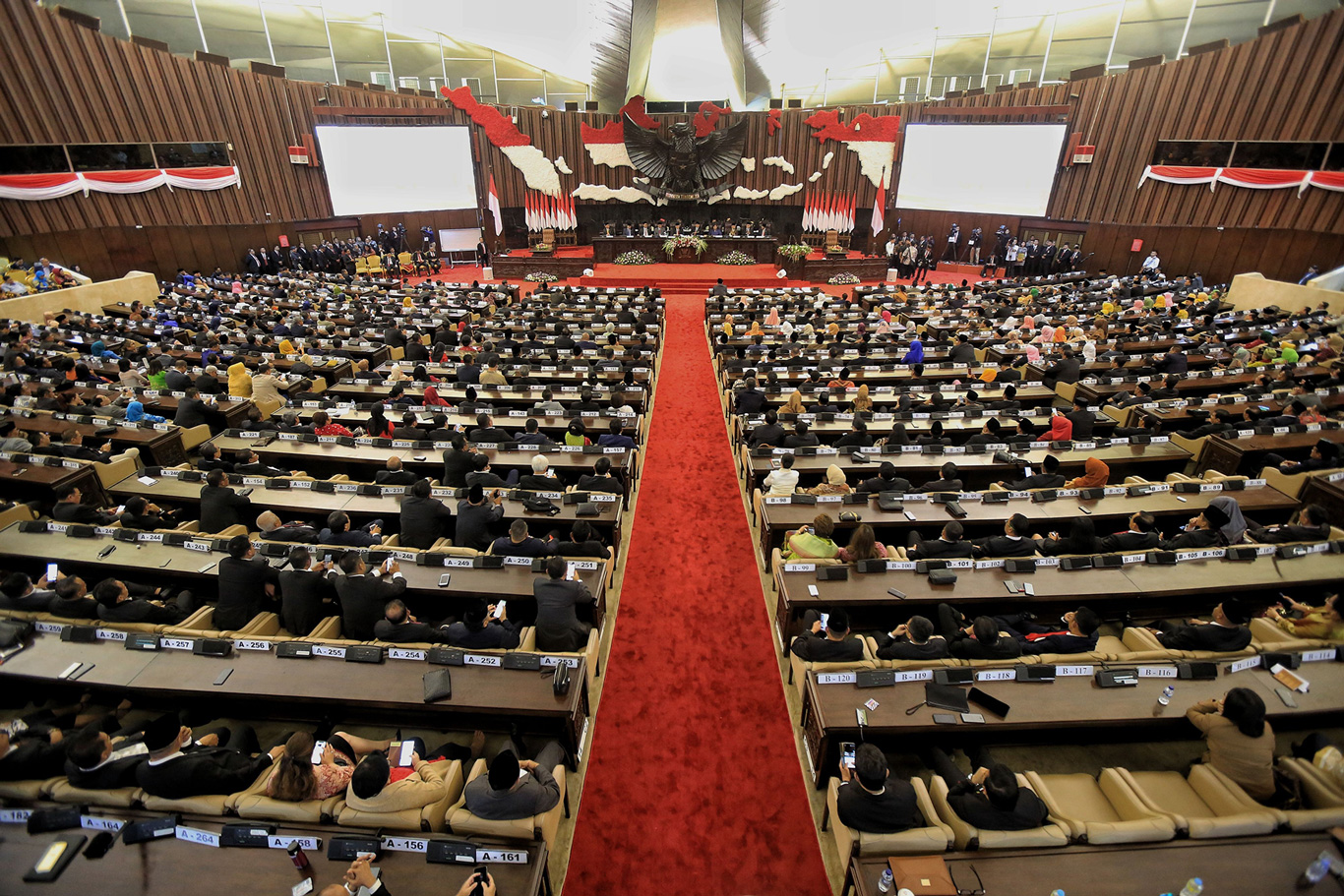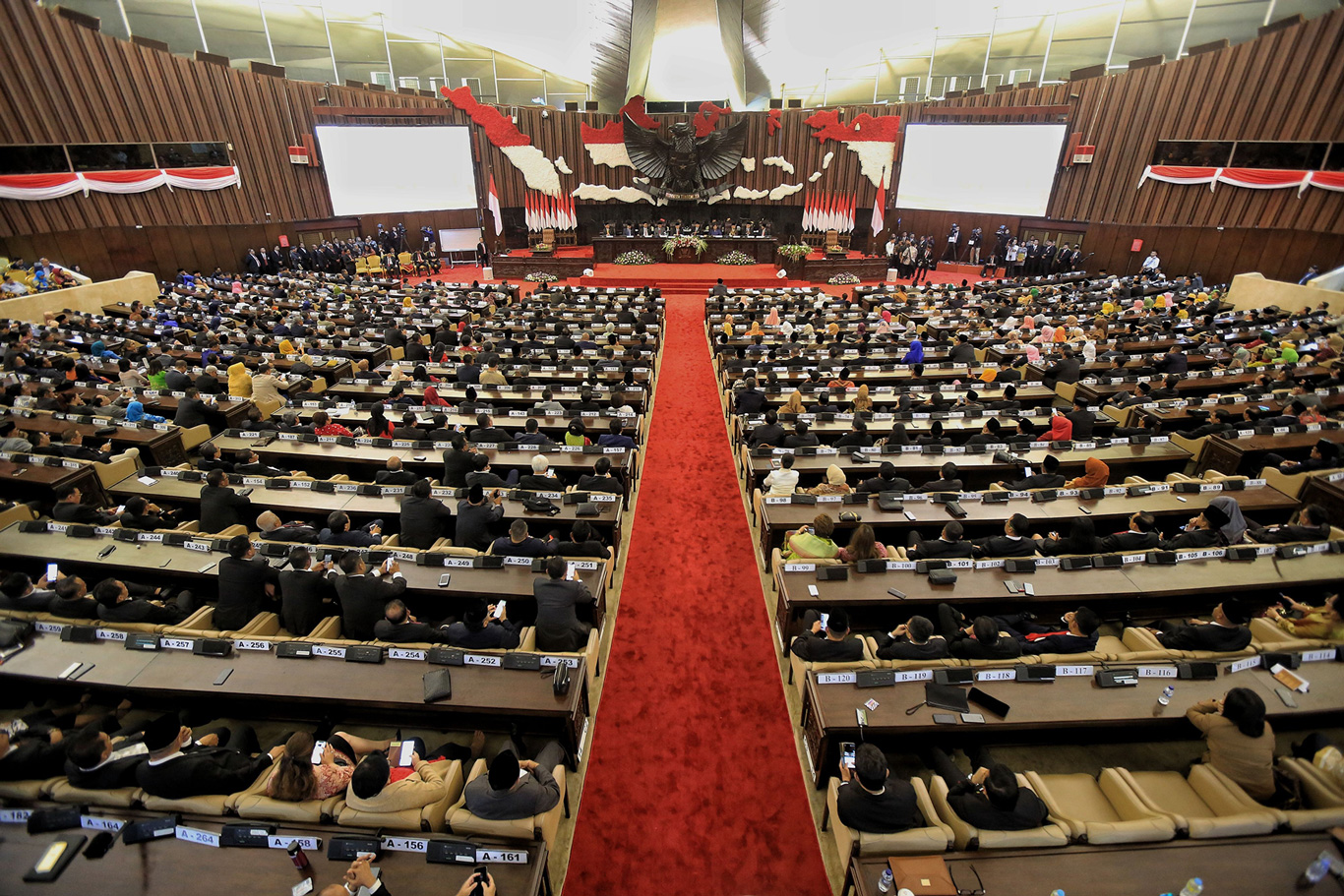Popular Reads
Top Results
Can't find what you're looking for?
View all search resultsPopular Reads
Top Results
Can't find what you're looking for?
View all search resultsWhy returning GBHN means rolling back democracy in Indonesia
There are concerns that the current plan to amend the Constitution will abolish reforms that have been made earlier.
Change text size
Gift Premium Articles
to Anyone
A
n amendment of the Constitution is on the horizon after all political parties in the legislature have agreed to work on its deliberation in the next five years.
Despite lawmakers' vow to limit the revision only to reviving the State Policy Guidelines (GBHN), there is no guarantee that they would keep the promise and not restore the New Order's system of indirect presidential elections by the People’s Consultative Assembly, making it a super body that will be more powerful than the president.
Experts have said there are indications that the amendment process will eventually move toward abolishing the current direct presidential elections, which came into effect in 2004 after the fourth set of constitutional amendments.
A politician of the ruling Indonesian Democratic Party of Struggle (PDI-P) that spearheaded the amendment agenda, Hendrawan Supratikno, has previously revealed several points suggested to be revised by the next Assembly.
The recommendations include a reformulation of the GBHN to serve as a benchmark for a president's policies, and restructuring the Assembly's authority to issue regeling, or decrees having higher legal power than laws while still remaining subordinate to the Constitution.
How powerful was the Assembly during the Soeharto era?


















